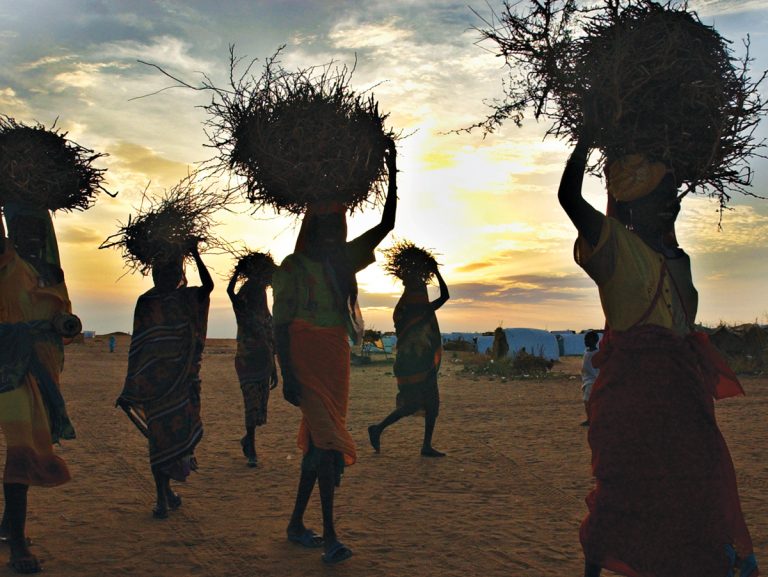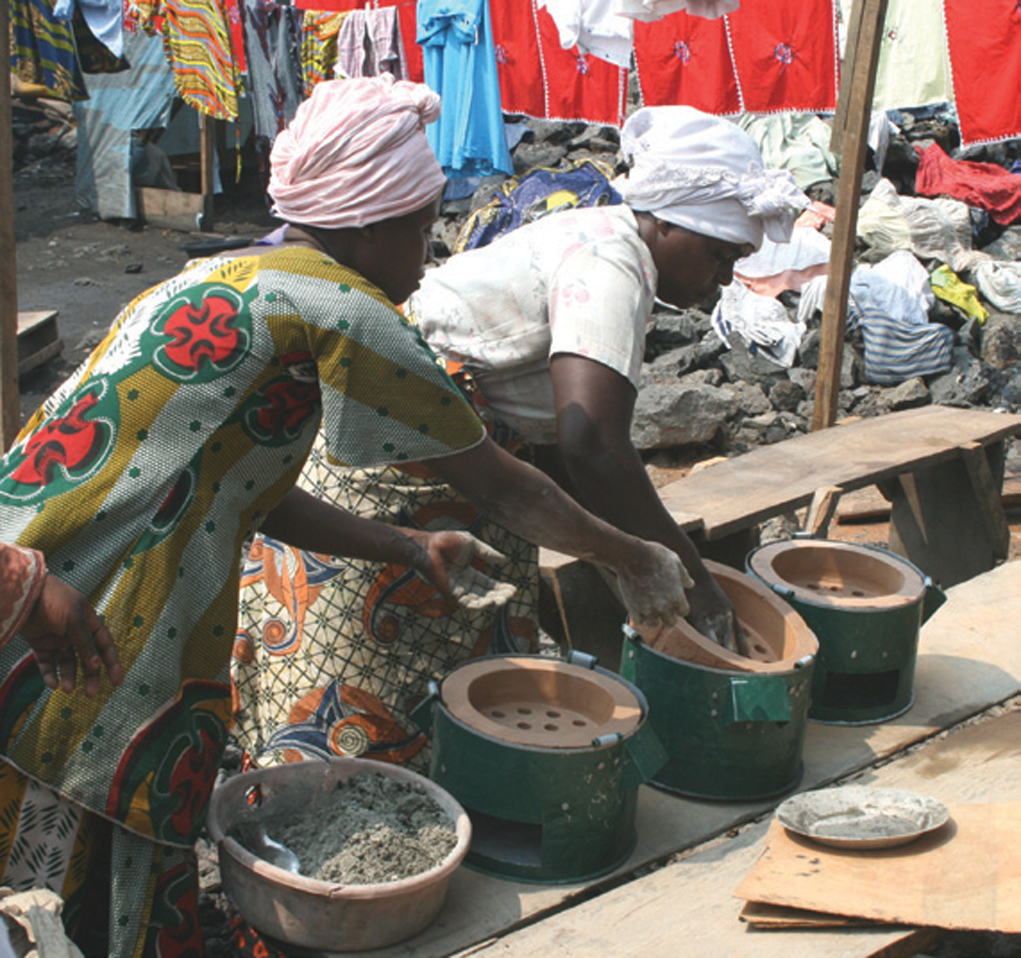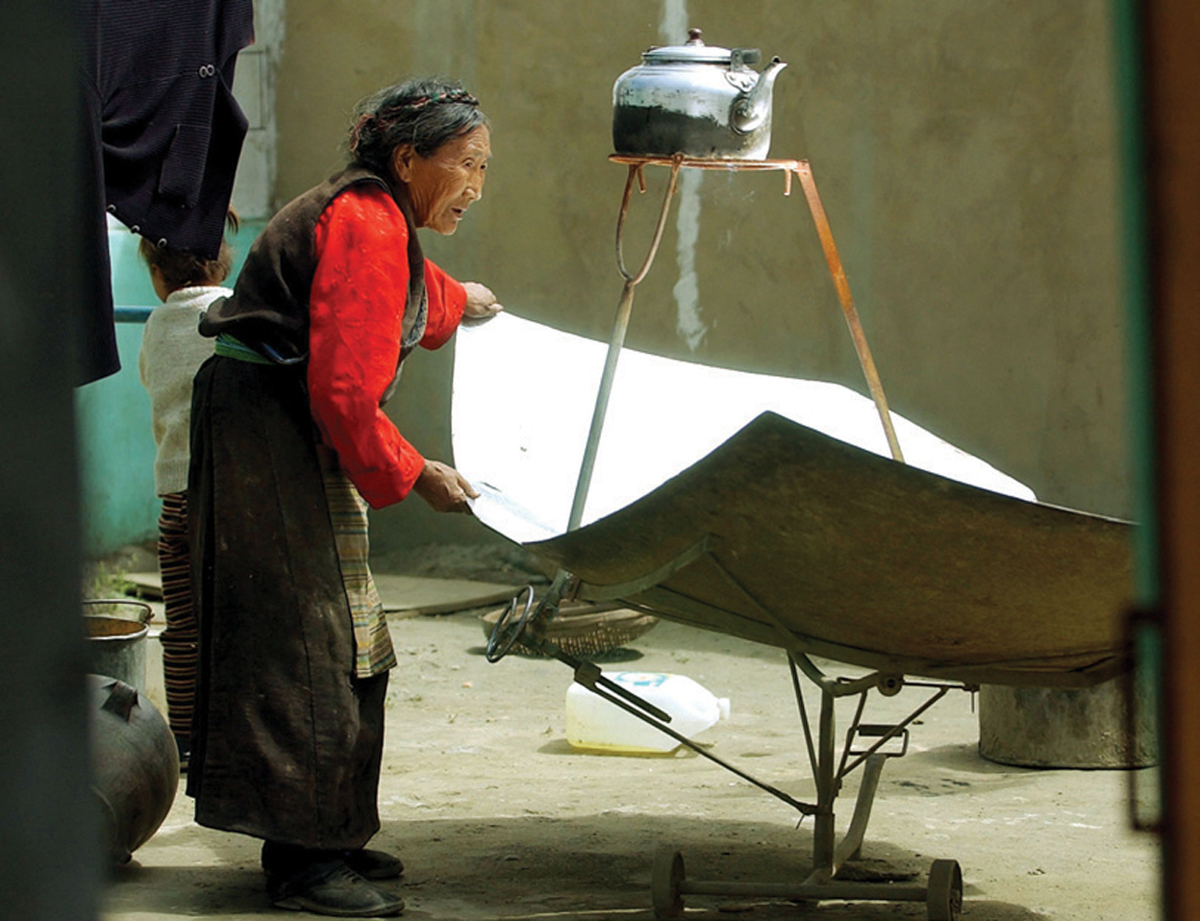
Women in the developing world are predominantly responsible for management and conservation of resources for their families. Women spend vast amounts of time collecting and storing water, securing sources of fuel, food and fodder, and managing land
Women play a critical role in managing natural resources on family and community levels and are most affected by environmental degradation. In communities around the world, women manage water, sources for fuel, and food, as well as both forests and agricultural terrain. Women produce 60 to 80 percent of food in developing countries, while inheritance laws and local customs often prevent them from owning or leasing land and securing loans or insurance. From the high level to the grassroots, the 1992 UN Earth Summit, India’s Chipko movement and Kenya’s Green Belt Movement all highlighted the role of women’s voices and perspectives in sustainable development.
By Cate Owren
The world’s women are the key to sustainable development, peace and security,” U.N. Secretary-General Ban Ki-moon told participants at the Earth Institute’s State of the Planet meeting at Columbia University, in New York City, in March 2010. Because women are the chief resource managers for their families in many parts of the world, their engagement in remedies for and adaptation to climate change is essential.
Across the regions and cultures of the world, women play critical roles in relation to their natural environment. Often deeply dependent on available natural resources for food, fuel and shelter, women can be particularly vulnerable to environmental changes or threats. Because women’s workload is often centered on managing natural resources, biodiversity and ecosystems, their experiences and perspectives are essential to sustainable development policymaking and actions at every level, for a healthy planet for generations to come.
Women in the developing world are predominantly responsible for management and conservation of resources for their families. Women spend vast amounts of time collecting and storing water, securing sources of fuel, food and fodder, and managing land — be it forest, wetlands or agricultural terrain. As women are primary caregivers to children, the elderly and the sick, whole communities rely on them. Their traditional and generational knowledge of biodiversity, for example, supplies communities with medicines, nutritional balance and crop rotation methods. When drought, erratic rainfall or severe storms affect access to these basic resources, women’s lives — and their families’ lives — can be intensely affected. In fact, studies have shown that natural disasters disproportionately hit women, lowering female life expectancy rates and killing more women than men, especially where levels of gender equality are low.
Women constitute just over half the world’s population, but women are responsible for feeding much of it — especially in rural regions of developing countries. Women produce between 60 and 80 percent of food in developing countries — and yet they officially own only 2 percent of land worldwide, according to the Food and Agriculture Organization. Historical inheritance laws and customs often prohibit or limit women’s direct control over land; even when women are able to own and lease land, they may not be able to secure loans or insurance to keep their resources safe. The lack of equitable land rights remains a major obstacle to women’s empowerment and poverty alleviation.

International agreements have made crucial links between women and the environment; the challenge is to take action. The Convention on the Elimination of All Forms of Discrimination Against Women (1979), an international “bill of rights” for women, addresses a host of environmental issues. Likewise, the Beijing Platform for Action, an outcome of the Fourth World Conference on Women (1995), includes an entire chapter on women and the environment. It foreshadowed the different impacts global warming would have on women and men, which are now evident across the globe.
Major sustainable development treaties, also, have acknowledged the specific need for women’s participation and for a mainstreamed gender perspective. The 1992 United Nations Earth Summit (UNCED) produced two key conventions — on biological diversity and on combating desertification — that have served as guides for implementation of environmental actions from a gender perspective. The overall UNCED document, Agenda 21, included a specific chapter on gender, which highlighted the important role women play in industrialized countries as sustainable consumers. Indeed, the links between women and environment are not solely concentrated in the global South (i.e., developing countries). Studies have shown that women in the North (i.e., developed countries) have a smaller carbon footprint than men, making the majority of “green” decisions at the household level and for travel according to a 2007 Swedish government report.

These international agreements indicate that, worldwide, women must be equal participants in all decisions related to their environment. Demonstrating great capacity as leaders, experts, educators and innovators, women and women’s movements have made great strides in preserving and protecting the resources around them. Women took the lead in the grass-roots Chipko Movement of India in the 1970s, where activists stopped the felling of trees by physically surrounding — literally hugging — the trees. They also protected water sources from corporate control. Similarly, the Green Belt Movement, the conservation and forestry movement which originated in Kenya on Earth Day in 1977, is another famous effort initiated by women. Women around the world continue the fight against climate change, making sustainable consumption choices, and improving access to, control over and conservation of resources. Their voices must continue to be comprehensively integrated into policy and implementation efforts at every stage for the well-being of future generations.
__________________
Cate Owren is executive director of the Women’s Environment and Development Organization (WEDO), a women’s global advocacy organization working to empower women as decision makers to achieve economic and social justice. Founded specifically to influence the 1992 Earth Summit (UNCED), WEDO strives to integrate gender perspectives and women’s direct participation internationally. Most recently, WEDO’s advocacy efforts contributed to securing the first-ever gender text in the U.N. negotiations on climate change.
Courtesy: Open Text BC